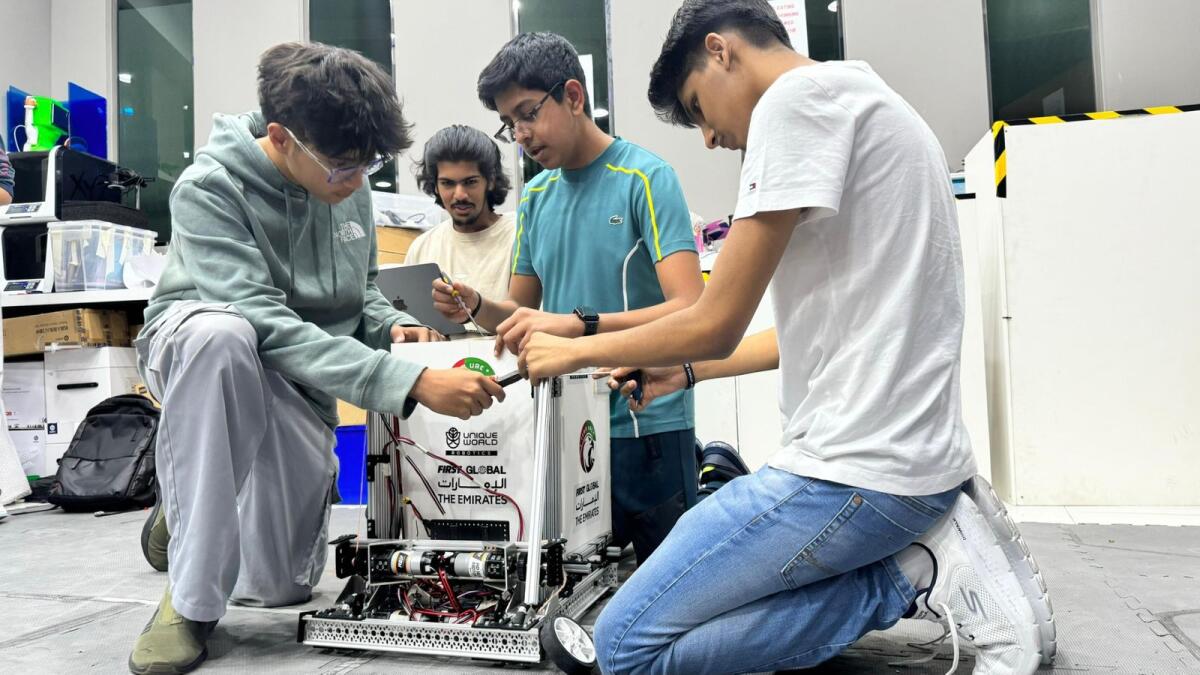A group of students from the United Arab Emirates (UAE) have developed a robot capable of detecting microplastics in food, and they will be representing their country in an Olympics-style robotics competition in Athens, Greece. The team consists of over 22 students from various schools in Dubai who have been working on designing, building, and programming the robot for over three months. The international robotics competition, known as the FIRST Global Challenge (FGC), will take place later this month.
Emirati student Saif Alsaedi, one of the students involved in building the robot, mentioned that the project required using AI and machine learning to program the robots to perform specific tasks. The students developed a robot that can detect microplastics in food samples using advanced machine learning technology. This prototype tackles a crucial health and environmental concern related to microplastic contamination in food.
Unique World Robotics (UWR) is the team that will be participating in the competition, where they will also showcase a robot capable of collecting water and energy elements and placing them accurately. Bansan Thomas George, the founder of UWR, emphasized the engineering and programming skills required to ensure the robot’s functionality in handling and dropping off elements precisely. This will be the second time that UWR students participate in this competition, building on their previous experience.
The competition follows an Olympic-style format where students from various countries collaborate to score points through their robots’ performance in collecting food and energy points. The students, aged 14 to 17, aim to excel in this year’s FGC, themed around feeding the future. The event serves as a platform to promote cross-cultural communication and cooperation among high school students globally, focusing on STEM subjects.
Dhriti Gupta, a fifteen-year-old team member who participated in the previous year’s competition, highlighted the importance of teamwork in the FGC experience. She shared that collaborating with peers from diverse backgrounds and combining ideas to solve challenges has been a valuable lesson for her. Bansan expressed high expectations for the team’s performance, hoping they can break into the top ten ranks. Nonetheless, the primary goal remains providing a valuable learning experience for the students to nurture their robotics talents.
The growing interest in robotics among students reflects a broader trend in educational institutions integrating robotics into their curriculum. For many aspiring students like Saif, robotics serves as a pathway towards fulfilling their ambitions, such as creating advanced technological innovations. With students gaining hands-on experience in coding and robotics, the field continues to inspire and empower the next generation of innovators and engineers.
In conclusion, the UAE student team’s participation in the international robotics competition signifies the country’s commitment to fostering STEM education and encouraging youth engagement in technological advancements. The students’ innovative solutions to real-world challenges like microplastic contamination demonstrate the potential of robotics in addressing global issues. As the students gear up for the FGC in Athens, their journey represents a testament to teamwork, creativity, and dedication in the pursuit of excellence in robotics.










